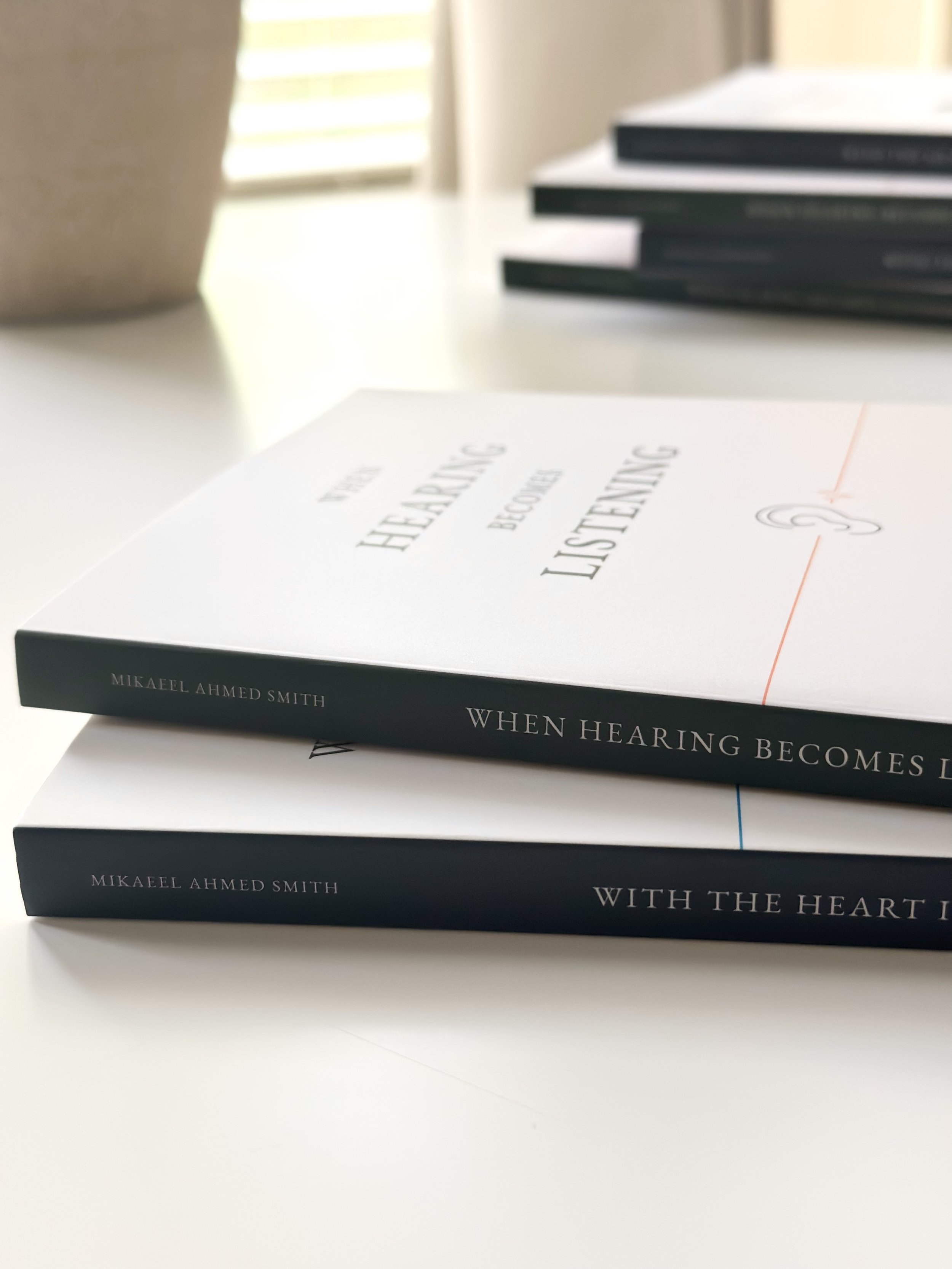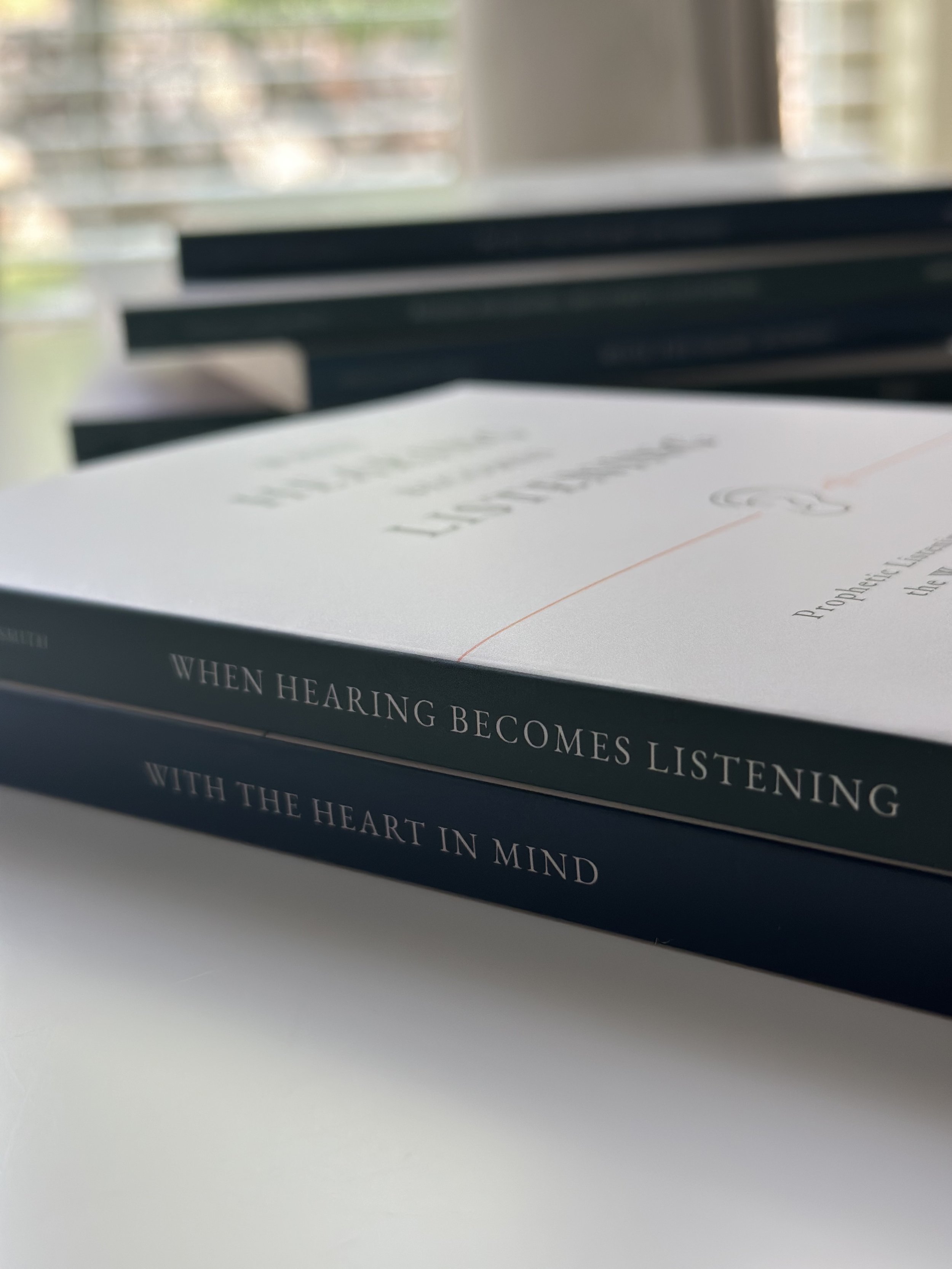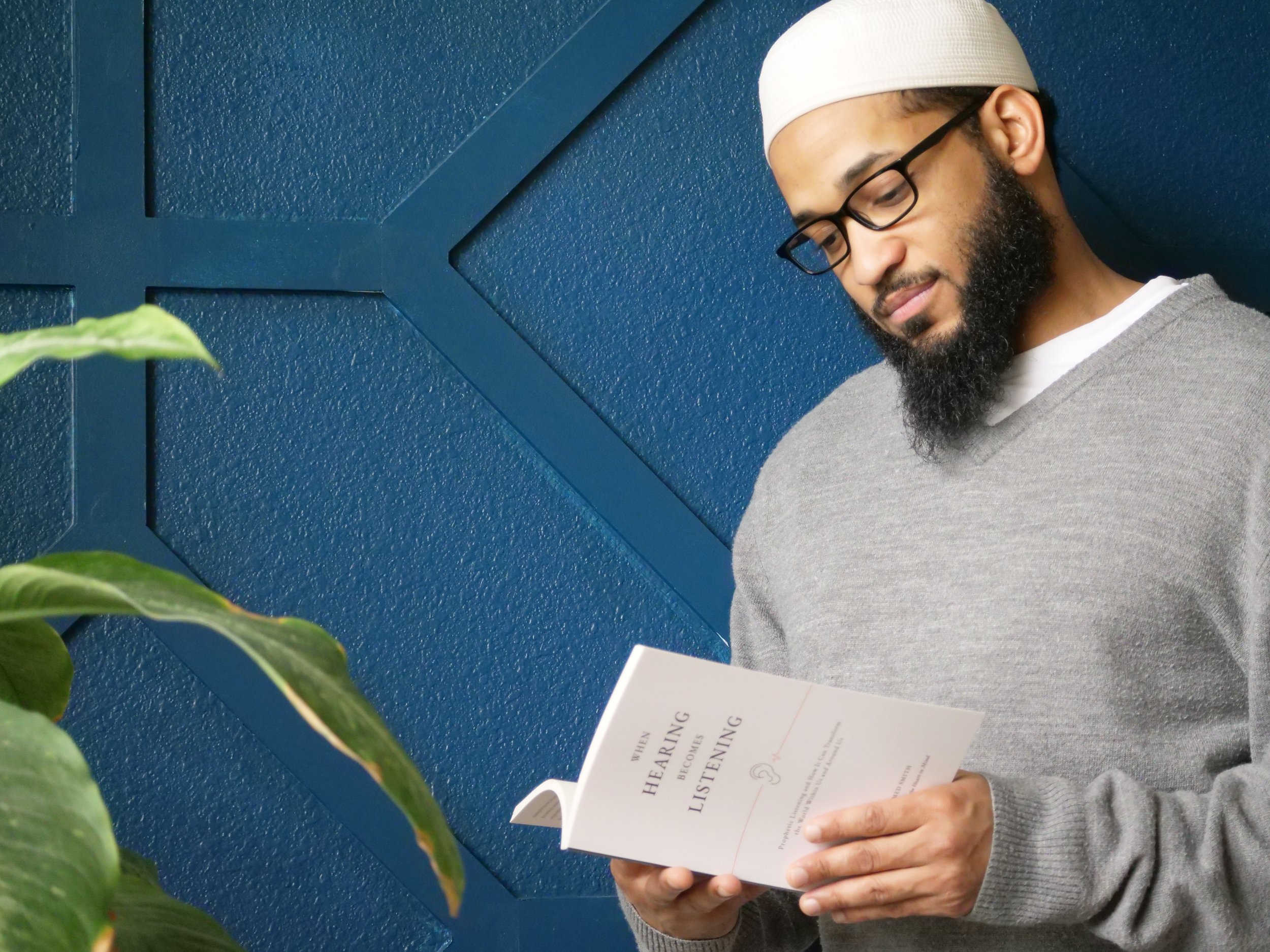
A prophetic framework for connecting people to self, others, and Allah ﷻ
Explore the groundbreaking work of Mikaeel Ahmed Smith that sparked conversations on deep change in the muslim community.
Attachment Models
Why is learning about attachment models important for a Muslim?
Within the heart of every Muslim is the desire to be more like the Prophet (peace and blessings be upon him). We all aspire to learn how he connected to people and how he helped people reach their full potential. Bringing the best out of people begins by understanding people and what makes them who they are. In his seminal books on attachment theory, John Bowlby proposed that human infants display a number of behaviors, like crying and clinging, that are designed to make sure that children gain closeness and proximity to their parents. It is the responses of the parents to those calls for proximity that shape the child's expectations about others people’s desire to connect to them and their own self-worth. Throughout the Quran we are reminded of our interdependent nature.
From the moment we are born, and subsequently, throughout our entire lives, we are seeking proximity and relationships with protective attachment figures, using the attachment figure as a secure base, and fleeing to the attachment figure when we experience a dangerous situation or difficult times. David Wallin explains that humans, like other primates but unlike many animals, when threatened, seek protection not in a place but in the company of a person who is viewed as stronger or wiser. From the perspective of Attachment Theory, the prophetic narration that says, “All of you are shepherds” means that all of us seek protection from others when we feel in danger and that all of us will also need to be people who others come to when they feel threatened.

Loneliness
As a society, we face a growing epidemic of loneliness despite the fact that we are globally more connected than ever before.
The hyper-connected age comes with a price. We are connected to more people, but less connected to meaningful connections with people that truly love us and care for our growth.
Social self-disclosure occurs in relationships when someone risks going a bit deeper and asks a more personal question, or shares more personal information, and that risk is reciprocated by the other person. This is where interpersonal listening skills come into play. Within social relationships, we have the core. These are the relationships where you and the other person disclose the innermost aspects of yourselves. Your innermost desires and your innermost fears are contained within your core self and we all desire to share those with someone to remove feelings of loneliness. And we are afraid to disclose those things to distant people because we don’t trust how that information will be used. We all need someone to listen to these fears and hopes, and we all desire intimacy, but we must make sure that we are sharing these intimate details with the right people.
Expectations
One blessing is the mind's capacity for predicting and categorizing experiences.
The powerful predicting machine allows us to quickly notice what is different and focus on that. But this capacity also creates a natural blindspot of quickly placing the new things we encounter into the cognitive boxes that we have already formed. This can sometimes stop us from seeing new things as unique and worthy of extra attention.

Noise
When Satan refused to follow the command of Allah and bow before Adam, he showed that the greatest noise that prevents one from gaining closeness to Allah and closeness to others is the noise of the narcissistic self. It is the spiritual ailments that we have, whether anger, greed, or jealousy, are the noises that distort what we hear. They are the noises within. Think of the Prophetic narration, “Your love for something blinds you and makes you deaf.”
Healing
Through listening to others we have the ability to reshape them for better or for worse. This brings us to the next benefit of becoming a better listener. Listeners shape people. They help them understand themselves and can have a healing effect on them. One example of the restorative potential of close companions is the research showing that having a close confidant and a functional support network can even help a person heal from severe medical problems. Thomas A. Wills and Michael G. Ainette studied the impact of a strong social network and the presence of a close confidant on patients who had just survived a heart attack. They concluded that, regardless of the depressive state of the person prior to the heart attack, if a person had people around to share company with them, the chances of them suffering another heart attack dropped by fifty percent. Emotional support also predicted a lower likelihood of death in the next 6 months

Moral Intelligence
For the Muslim, developing moral intelligence begins with an understanding of what the ʿaql does. It sees and it is that which “holds one back.” In other words, it has the capacity to know and also the capacity to control. In fact, knowledge is not considered praiseworthy from the Prophetic perspective until it gains the title of ʿilm al-Nāfʿi or beneficial knowledge, which is knowledge that produces positive changes within a person. The word Muslim or “one who submits” includes both aspects of the moral intelligence. First is the submission to accept a moral standard which comes from other than oneself. The second type of submission is one’s nafs submitting to what the ʿaql demands it to do.
Respond
It is not that we only desire to be heard, but deep inside we desire other to respond to us. This is the core of Attachment Theory, how do people respond to the calls of others. But this ability to respond in an attuned manner is not simply in relation to other people, learning to respond is also a skill that transfers over to our relationship with Allah.

